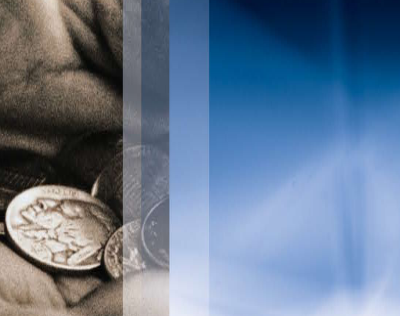Kuwait Islamic Investment Banking, Muthanna Investment Company
Interview with Abdul Aziz Al-Mazooq. Muthanna Investment Company business model is based on a pure Islamic investment banking model focusing on Islamic investment banking activities including transaction advisory services, private equity transactions, real estate investments, and asset management activities like brokerage, equity research, and management of discretionary accounts. It is a basic model Islamic investment banking model, the only thing that keeps Muthanna Investment Company going is focusing on several dimensions at once.
Islamic banking and finance started inferior thirty years ago but started to position itself very well within the banking and investment industry. It dominates in the GCC and MENA region and has proved its under-writing criteria is much stronger than their peers on the conventional side. Also, they don’t deal with derivatives or hybrid securities that are the cause of the last fourteen months issues.
The Kuwait report claims that Islamic finance is likely to advance in 2010 with firm growth and in a widening geographical region. What is your opinion and what are your expectations?
The Islamic finance industry has expanded over the last five years almost everywhere in the world. We have seen Islamic commercial banks open in the UK and expansion for GCC based banks in Asia, Europe, and N. Africa. There is a demand for Islamic banking and for Islamic banking institutions. The GCC based Islamic financial institutions are well positioned for the expansion and I think the crisis presents an opportunity for further expansion into the world.

In Europe and the US, Islamic banking isn’t well known yet. What message do you have to Europe and the US about Islamic finance in general?
It is not known from a retail banking perspective but it is well known from an institutional banking perspective, especially in Europe because they deal with Islamic institutions regularly. The retail banking side is still an infant to the US/Europe market and may be currently considered a niche market for Islamic minorities living in those areas. However, non-Islamic clients will eventually be served as well on day. I am sure that in the US/Europe both Islamic and conventional clients can be serviced with Islamic banking.
What is the outlook for the industry for the next five years? What are the trends you see as an industry professional?
The industry has undergone an evolution of sorts the past five or ten years. New instruments and structures were introduced and I think soon these instruments will be similar on both the Islamic and conventional side except for the shari’ah compliant facets on the Islamic side. I wouldn’t be surprised to see some shari’ah compliant hedging procedures appear in the next few years. We will probably also see derivative instruments in certain areas and this will be good only if used in hedging instruments and this will be limited in applicability.
Do you think Muthanna Investment will jump on this bandwagon?
Not necessarily. Structuring derivatives is a very complex process. It is something that will probably be done somewhere further down the road. The only instrument we are currently serving is the forward sales on KSE shares. If any client is interested in buying a feature contract on any specific shari’ah compliant company listed in on the Kuwait Stock Exchange, we can do the service for them. We haven’t expanded this further because it has the potential to get complicated and risky. However, if with time the risk is not so high and if it is shari’ah compliant we would probably develop something like that. We are always working to try to give our clients a balanced product between return and risk.
Since activation in 2004, one of Muthanna Investment’s strengths was diversified business activities that enabled you to smoothly enter the local and international markets. How would you describe your business model and how do you differentiate yourselves from other Islamic investment companies in the Gulf and internationally?
Our business model is based on a pure investment banking model focusing on investment banking activities including transaction advisory services, private equity transactions, real estate investments, and asset management activities like brokerage, equity research, and management of discretionary accounts. It is a basic model, the only thing that keeps us going is focusing on several dimensions at once.
We are not a one dimension company that focuses on trading in the Kuwait Stock Exchange and devotes all its resources to this. We meet our clients various needs through different departments. One thing that makes us stand out is that we are backed from Kuwait Finance House (our parent company). Another one of the positive initiatives we have taken is our online trading platform which has been quite well received by our customers.
The markets have started to show positive signs of recovery, however, the availability of financing continues to be a concern for Kuwait’s non-hydrocarbon sector. What is your general assessment of the current business sentiment in Kuwait?
What is your perception of the regulatory and legal framework in Kuwait?
Recently we are happy with the performance between the government and parliament and for the time being there are no problems. We hope that this good relationship will continue and that more legislation will be enacted to benefit the economy. The stability law is geared towards stabilizing the economy and this is positive too. I think confidence is being restored and half of the solution relies in the confidence of investors.
Recently you have made plans to enter Bahrain with Takhsin. How do you seen your future presence in Bahrain and abroad in the US and UK and why did you decide to enter Bahrain? What is your investment strategy?
Takhsin is an institutionally backed self storage company based in Bahrain and we are looking for other opportunities in the GCC as well. We feel that this segment in particular has been neglected for a long time and all of the warehousing and logistic companies didn’t focus on this kind of service. It is not geared only for Bahrain, however. Our strategy has been and will remain in investing in growth opportunities and investment services to benefit the economy in the future.
How do you find this deals and opportunities abroad?
Our professional have an average of fifteen years of experience. They develop contacts, a network, and their research abilities. This combination helps us discover all of these opportunities and then filter through them to find the ones that best suit us. Before we enter into anything we have a process of due diligence to make sure the transaction is only only attractive from a return perspective but also attractive from a risk perspective as well. You want to make sure that is is a sound investment that will stand still in the event of another crisis and not deteriorate.
How would you define your biggest challenge?
Lack of funding has been a challenge for the past 16-18 months. I think this will come back to the market but gradually and this is fine given what has happened in the local market. The biggest challenge, however, is finding the right opportunities. Thorough due diligence requires a closer look at the market you are going to get into. For example, last year we acquired a brokerage company that is one of the fourteen companies for the Kuwait Stock Exchange, but we did not want to acquire another similar company in the GCC. The reason is that the market was so open here with the fourteen licenses that there was some limitation. In other GCC markets it is quite open to the point where the margin is very thin and the concessions are very high. These are the types of issues we have to deal with occasionally by having a global perspective with the opportunities we look into.
In the next month what are you looking to solve?
We want to meet our targets for 2010 in every department and division that we have. We are focusing on closing deals and delivering our numbers for the year- we are optimistic and want to make sure we meet out targets.
What are your expectations for 2010 compared to 2009?
We are planning to have better results in 2010 than 2009. Our growth target is a mid single digit growth in terms of profitability.
How do you want to enter further into the international market? What is your perspective?
That depends on opportunity as well. We are looking at a few opportunities in the US and the UK but it will depend on pricing, the availability on financing, and the market the opportunity operates in, among other things. There are attractive opportunities today in the US if you are careful and can price it correctly in the real estate sector on the income generating side. You also have a better chance of getting financed on an income generating opportunity. Aside from the US and UK, we also focus on the GCC.
As a Kuwaiti, what is your final message about the economy?
I am very optimistic about the future, especially with the government plans and the expectations. The next five years look like they will be very busy and it is a good opportunity for investors abroad to take a look at what part they can have in the projects offered by the government here.
